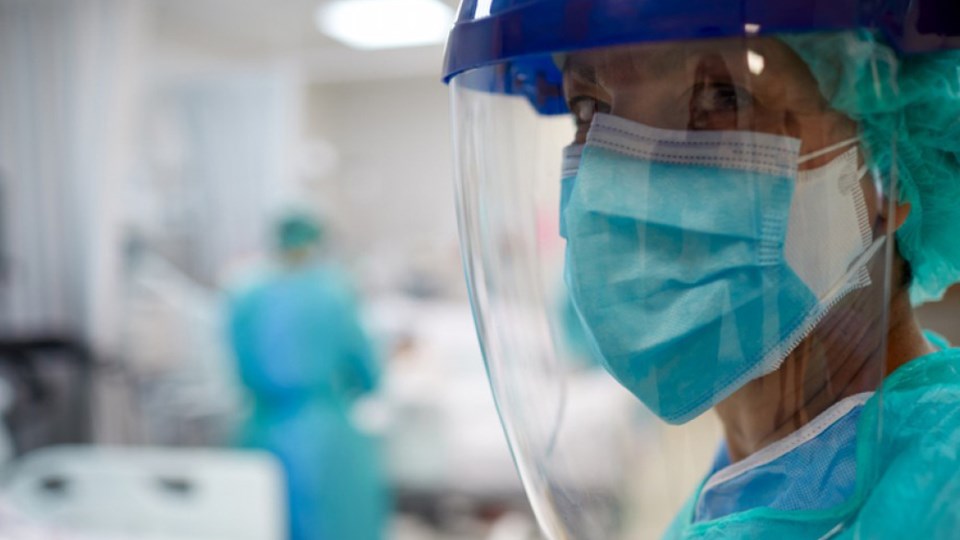British Columbia’s second mask mandate is over, two years after provincial officials discouraged the public from wearing face masks and promoted hand-washing to stop the spread of the novel coronavirus.
Behind the scenes, according to briefing notes obtained under freedom of information laws, they were panicking about empty shelves.
In February 2020, demand for personal protective equipment (PPE) spiked after China’s biggest factories closed. sa���ʴ�ý medical supplies buyers sounded the alarm about depleted regional stockpiles. Almost $3 million of emergency supplies bought since 2013 had expired, become obsolete, been donated to Africa’s anti-Ebola effort or absorbed into daily use. Just over $2 million of surgical masks, N95 respirators, gloves, goggles, gowns, hand sanitizer, syringes, needles and bandages remained.
“Should a widespread pandemic occur in sa���ʴ�ý, the current level of pandemic supplies will likely not meet sa���ʴ�ý’s requirements which may lead to public safety risk,” said a Feb. 13, 2020, Provincial Health Services Authority (PHSA) supply chain department briefing note.
As COVID-19 spread, PHSA’s new CEO, Benoit Morin, did a $7 million, no-bid deal with a Quebec supplier. But the made-in-China items delivered by Luminarie were flawed and the costly writedown led to Morin’s early-2021 firing. Fraser Health spent $2.65 million with Burnaby’s West-Can Auto Parts, including 200,000 level-2 masks and 8,000 one-gallon jugs of hand sanitizer.
From April 1, 2020 to March 31, 2021, PHSA and Vancouver Coastal Health (VCH) went on a half-billion-dollar PPE buying spree to protect doctors, nurses, technicians and patients from the virus. A June 2021 briefing note, obtained under a freedom of information request, shows PHSA spent $465 million and VCH $41.9 million (quantities were not included). But around 20% – or $102.1 million – was deemed unfit for use and written off in end-of-year financial reports: $67.4 million for PHSA and $37.4 million for VCH.
“The inventory still exists in sa���ʴ�ý,” said the briefing note. “While it does not meet strict healthcare standards, much is still considered to be acceptable PPE for other, less controlled settings.”
By February 2021, according to another briefing note, sa���ʴ�ý had six to 12 months’ stock of key PPE. Some types exceeded 12 months on-hand. There was so much that three warehouses had to be rented. Only a year earlier, Premier John Horgan’s deputy minister, Don Wright, had ordered staff to search under their desks for N95 masks in their earthquake kits.
Wright’s March 27, 2020, memo appealed for respirators to be sent to his office for redistribution to doctors and nurses on the frontlines.
“I expect the Premier will be very interested in seeing how many masks are collected, which is why I would ask that they come here,” Wright wrote. The precise number of N95’s collected was not released, but 1,265 masks and five boxes of latex gloves were found in Ministry of Health offices.
sa���ʴ�ý originally built a stockpile after the Dr. Theresa Tam-led, Canadian Pandemic Influenza Plan for the Health Sector report in 2006. Tam and co-authors warned provinces to be prepared because a pandemic would trigger international supply chain shortages.
A British Columbia Ministry of Health assistant deputy minister told regional officials in 2007 to build up a 10-week stockpile of emergency supplies. Michael MacDougall estimated waves would last six to eight weeks, and possibly 15 weeks in a large area.
“A survey of major suppliers’ stockpile practices indicates they also have about two weeks of inventory in sa���ʴ�ý,” MacDougall wrote. “Many suppliers manufacture offshore and the majority of suppliers do not have pandemic business continuity plans.”
The World Health Organization officially declared the pandemic on March 11, 2020. Just over a month earlier, Dr. Tedros Adhanom Ghebreyesu said PPE demand was 100 times greater and prices 20 times more expensive than normal.
A scathing report by the Canadian Federation of Nurses in October 2020, called “Time of Fear: How sa���ʴ�ý Failed Our Health Care Workers and Mismanaged COVID-19,” said sa���ʴ�ý was woefully unprepared because it largely ignored the lessons of SARS.
“We will never know how many of the more than 21,000 Canadian health care workers infected with COVID‐19 might have been kept safe had there been sufficient stockpiles at a precautionary level,” the report said.
In the only televised leaders’ debate of the 2020 snap election, Horgan admitted his government hadn’t anticipated a pandemic.
“We didn’t think about it in 2017, 2018 or 2019,” Horgan said. “We didn’t think about it in February [2020], when we tabled our balanced budget. We only thought about it in March when it hit us right in the face.”



